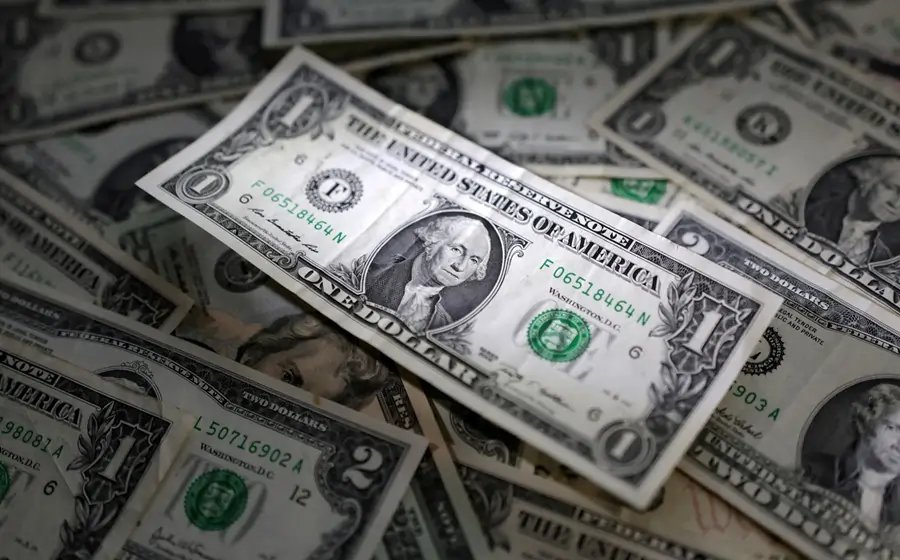Euro steady ahead of French no-confidence vote, South Korean won rebounds
Published by Jessica Weisman-Pitts
Posted on December 4, 2024
4 min readLast updated: January 28, 2026

Published by Jessica Weisman-Pitts
Posted on December 4, 2024
4 min readLast updated: January 28, 2026

By Kevin Buckland and Alun John
TOKYO/LONDON (Reuters) -The euro marked time on Wednesday as a French no-confidence vote inched closer, while the Australian dollar tumbled to a four-month low on slowing economic growth and the won rebounded after South Korea’s president backed down after declaring martial law.
The European common currency was holding steady at $1.0499 and 82.83 pence ahead of a vote by French lawmakers on no-confidence motions which are all but certain to topple the fragile coalition of Prime Minister Michel Barnier.
The debate is due to start at 4 p.m. in Paris (1500 GMT), with voting expected about three hours later, parliament officials said.
Barnier’s removal would deepen the political crisis in the euro zone’s second-largest economy, and could further weigh on the euro, which has fallen sharply since Donald Trump’s victory in November’s U.S. presidential election.
“The unfavourable political developments in France continue to pose a downside risk for the euro although are not necessarily sufficient to trigger another leg lower on their own,” said analysts at MUFG.
Euro-watchers are also keeping an eye out for remarks by ECB President Christine Lagarde later in the day.
The Australian dollar sank 1.22% to its lowest level in four months at $0.6407, after data showed earlier on Wednesday that the economy grew at its slowest annual pace since the pandemic in the third quarter.
Markets moved to fully price in a rate cut next April from a 73% chance before.
“The weakness of annual growth in spending and continued pressures on household disposable income – even with tax cuts flowing – points to a weaker underlying picture,” said Pat Bustamente, senior economist at Westpac.
SOUTH KOREA
Investors were also focused on South Korea’s won, which regained some ground on Wednesday after plunging overnight in the wake of President Yoon Suk Yeol’s declaration of martial law, which was reversed hours later.
The dollar was last down 0.6% at 1,416 won, after jumping 1.6% overnight. But politics remained in focus and South Korean lawmakers on Wednesday submitted a bill to impeach Yoon.
Dealers said the country’s central bank may have supported the won at Wednesday’s open by selling dollars.
“Near term, you’ve got to think that it’s going to be difficult for the won to do particularly well. (There is a) terrible structural backdrop, the domestic economy looks weak, you’ve got the central bank likely coming in and doing more (easing) than was previously expected, and on top of that, political malaise,” said Rob Carnell, ING’s regional head of research for Asia-Pacific.
The fact that just generally the dollar looks stronger than everything else by default (makes it) almost a perfect storm.
The dollar also climbed against the Japanese yen gaining 1% to 151.20, after media reports which raised doubts about market expectations that the Bank of Japan would hike interest rates this month sent government bond yields lower. [JP/]
As for dollar-specific developments, the currency got some support on Tuesday after data showed U.S. job openings increased moderately in October while layoffs declined, even as Federal Reserve officials on the day did not provide definitive guidance on what they intend to do at the conclusion of their next policy meeting in two weeks’ time.
Traders are waiting for monthly payrolls data on Friday for more clues on the rates outlook, while a private payrolls report due later on Wednesday will offer something of a preview.
Market-implied odds of a quarter-point rate reduction on Dec. 18 last stood at 74%, according to CME’s FedWatch Tool.
Sterling was flat at $1.2665, after briefly dipping on remarks from Bank of England governor Andrew Bailey.
(Reporting by Kevin Buckland, Alun John and Greta Rosen Fondahn; Editing by Muralikumar Anantharaman, Kim Coghill and Gareth Jones)
A central bank is a financial institution that manages a country's currency, money supply, and interest rates. It oversees monetary policy and often regulates the banking system.
Currency hedging is a financial strategy used to protect against potential losses due to fluctuations in exchange rates. It involves using financial instruments to offset risks.
Foreign currencies are the currencies used in other countries, which can be exchanged for the domestic currency. They are essential for international trade and investments.
Economic growth refers to the increase in the production of goods and services in an economy over time, typically measured by the rise in Gross Domestic Product (GDP).
Financial markets are platforms where buyers and sellers engage in the trading of assets such as stocks, bonds, currencies, and derivatives. They facilitate capital flow in the economy.
Explore more articles in the Trading category











